„Continuing business as usual“ – the case of the Youth Center and Platform for Lazareti during the COVID-19 crisis
Edited on
11 May 2020„The work of civil society organizations contributes to the realization of the highest values of the constitutional order: freedom, equality, national and gender equality, respect for human rights and social justice, the rule of law and democratic multilateralism" (Strategic Plan of the Civil Society Council of the City of Dubrovnik, 2015:6).
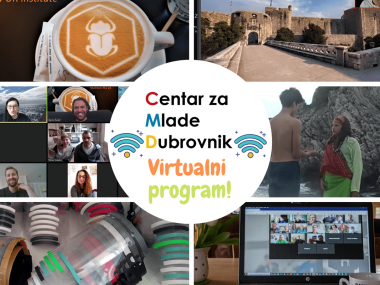
Being an NGO, and especially a successful one has never been an easy task in Croatia. Faced with many problems in the financial, policy framework, spatial, and political field they have become an ideal candidate to survive in any situation. Such as a coronavirus pandemic.
Dubrovnik has a very long tradition of active citizens being engaged in civil initiatives going back to the end of the 19th century. All of these initiatives did and still are focusing their work around sustainable urban development whilst being guided by the imperative of raising the standard of citizen participation, enriching the lives of the local community, and in particular, fostering social sensitivity and social responsibility in a diverse variety of fields. Such efforts became especially important in contemporary conditions Dubrovnik faces in a form of a certain level of degradation of urban life, services, and opportunities under the pressure of the monoculture of tourism developing it as a destination rather than an urban center. At the same time, NGOs in Dubrovnik and especially members of the Youth Center and Platforma for Lazareti are being recognized as examples of good practice on national and European level and are a significant actor in the development of institutional policies and practices.
However, on a more local level, they are faced with the issues of the lack of space for their work and activities, financial uncertainty, insufficient communication and dialogue with the public authorities and insufficient policy frameworks which would allow the recognition of their value in the development of the City of Dubrovnik. These problems are especially negatively accumulated in any financial and social crisis which more times than not result in ad hoc, nonnegotiable cutting off the funds that are allocated for their activities and projects. They are facing a similar situation even now, in the wake of post-coronavirus times.
At the same time, their work hasn't stopped. NGO members of the Platforma for Lazareti and Youth Center have responded constructively and flexibly to the radical changes that the coronavirus has caused in the society, continued providing their activities and services and in such significantly outperformed many state structures, city departments, and public institutions when it comes to the needs of their local community.
For example, one of the first and most successful initiatives which emerged in the first and hardest days of the epidemic in Dubrovnik came from the NGOs joined in the Association of Technological Culture Dubrovnik, one of the partners from the Youth Center Dubrovnik, who alongside the University of Dubrovnik and numerous other partners joined their knowledge and 3D printers in a collective effort of printing face shields for medical staff, pharmacies, police officials, etc. Thus far, around 3 thousand face shields have been made and delivered and they are continuing their efforts with the help of the citizens: https://bit.ly/2yXPMeU
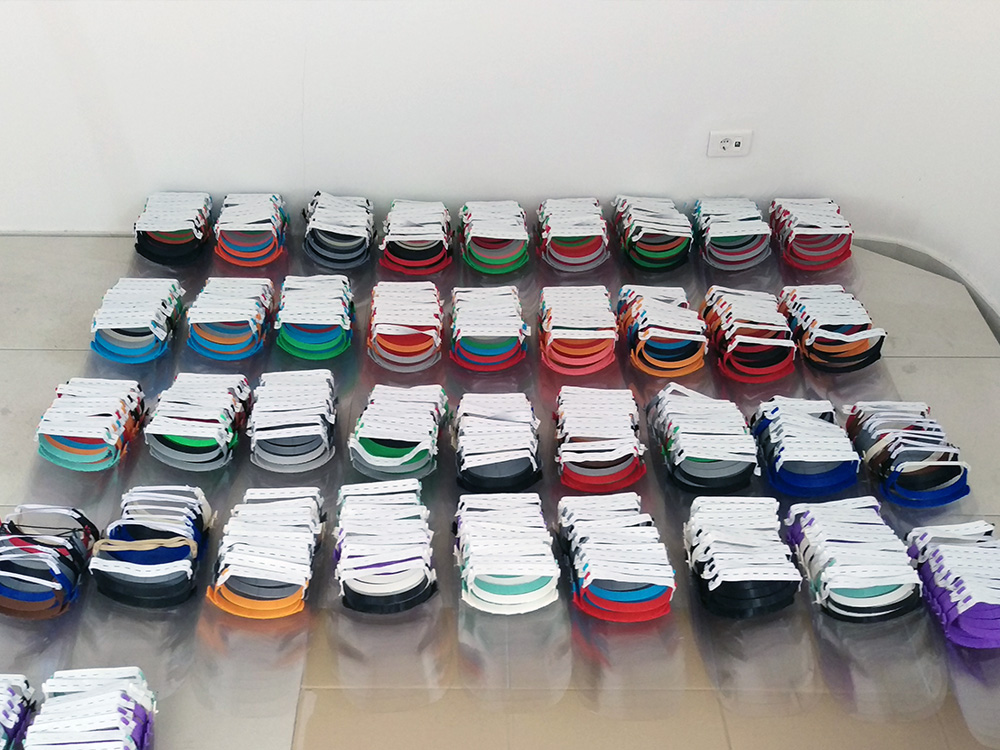
But not only modern technology helped. Platform for Lazareti member NGO Deša has organized a collective effort in making the protective masks with the members who attended their sewing workshops. They are also actively spreading the knowledge of how to make them for anyone that has enough skill, will, and a sewing machine at home to help. The whole of the community responded not only with gratitude but also with providing them with the needed materials: https://bit.ly/2Yh0Nm3
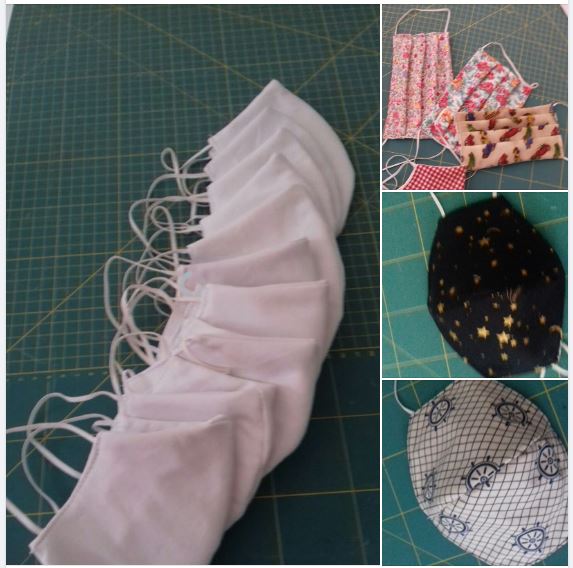
Their work hasn't stopped there. As we all know, during catastrophic times such as these, mental health is also of great significance. NGO Deša also continued their free legal, psychological and emotional support for victims and witnesses of domestic violence online through the mail and phone line knowing well that the victims are especially in danger during the quarantine and isolation time: https://bit.ly/3d0gmm9
Similar activities were offered by the members of the Youth Center Dubrovnik, NGO Bonsai and psychologists from the Counseling Center of the Youth Center in the form of online counseling and „Korona antistress coffee“ meetings. Summary of one of the meetings can be seen here: https://bit.ly/3aQiOtQ Bonsai also holds once a month online form of a „Human Library“
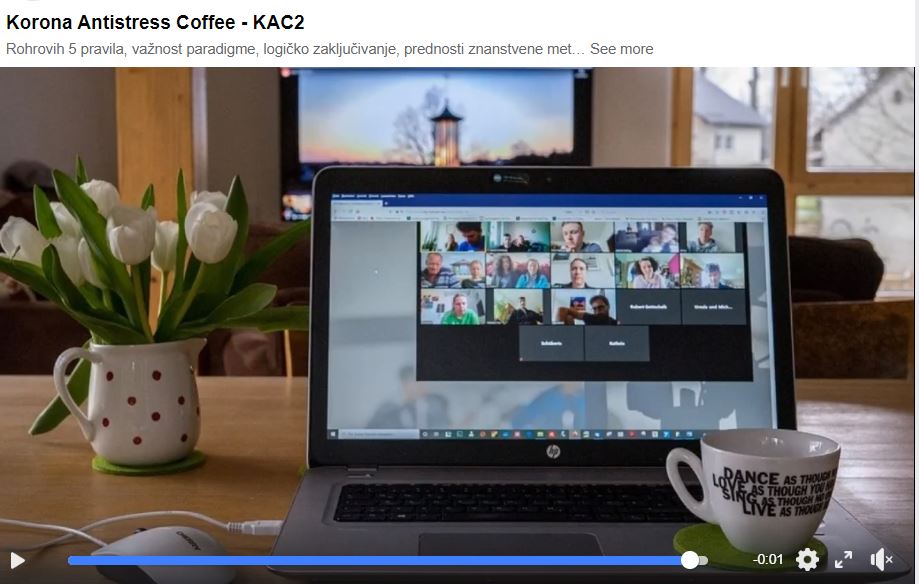
Youth Center has also offered other numerous educational activities such as „STEAM Caffe“ organized by the UR Institute in collaboration with external topic experts (https://bit.ly/2KJITjZ ), an online database made by young filmmakers from the Šipan Film Summerschool (https://bit.ly/2yQOMcq) alongside tutorials on how to make your video made by NGO Luža (https://bit.ly/35hk4Fc) as well as other topics such as tips and tricks in the of coronavirus for young entrepreneurs by the Center for Youth Careers and many more which can be found on their main Facebook page https://bit.ly/2SjZ6AB.
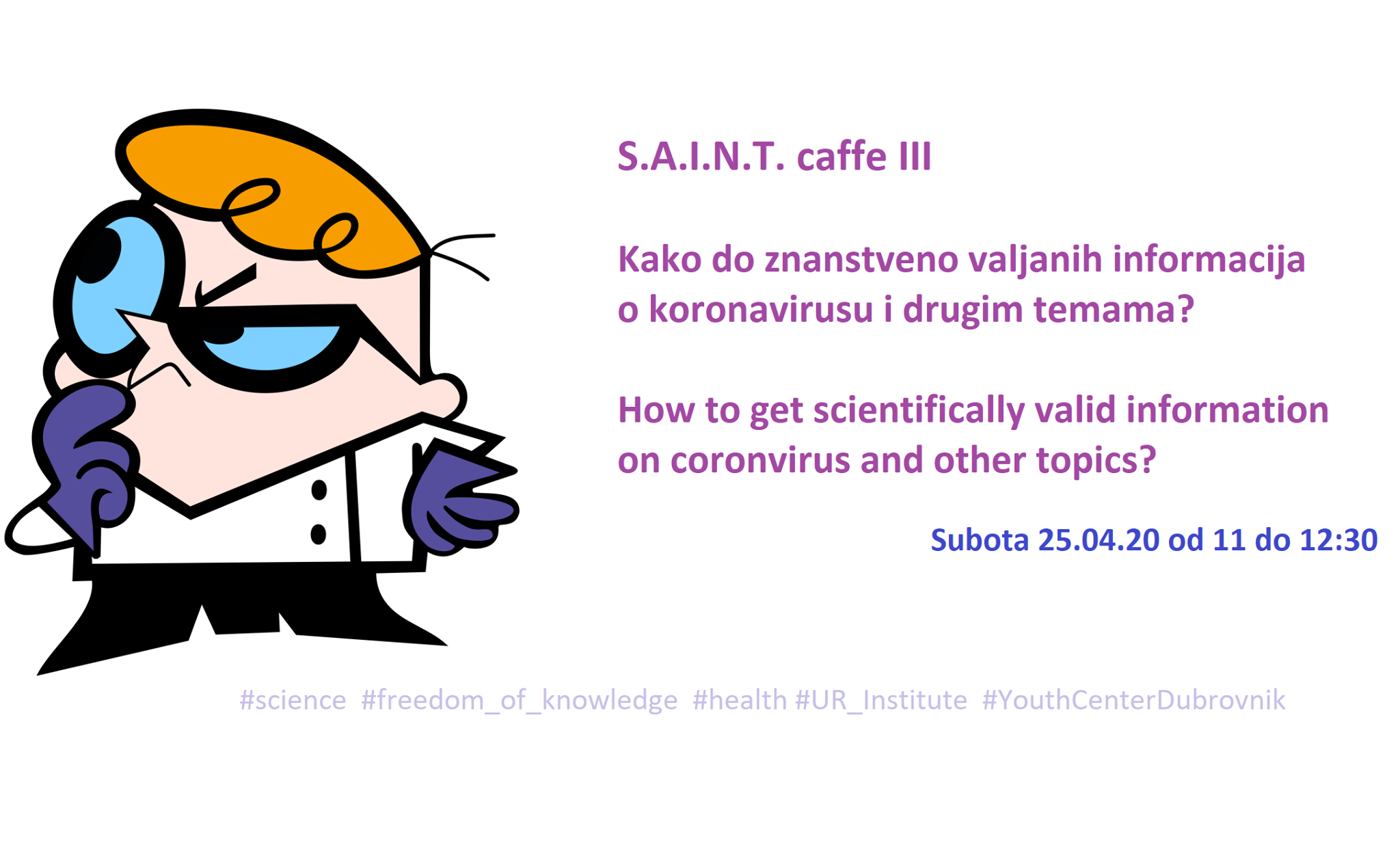
Similar educational activities were also offered by the NGO Deša from the Platform for Lazareti in a form of „how-to“ Youtube videos which can be found here: https://bit.ly/3d2ecCm as well as their language learning workshops which are now being held online.
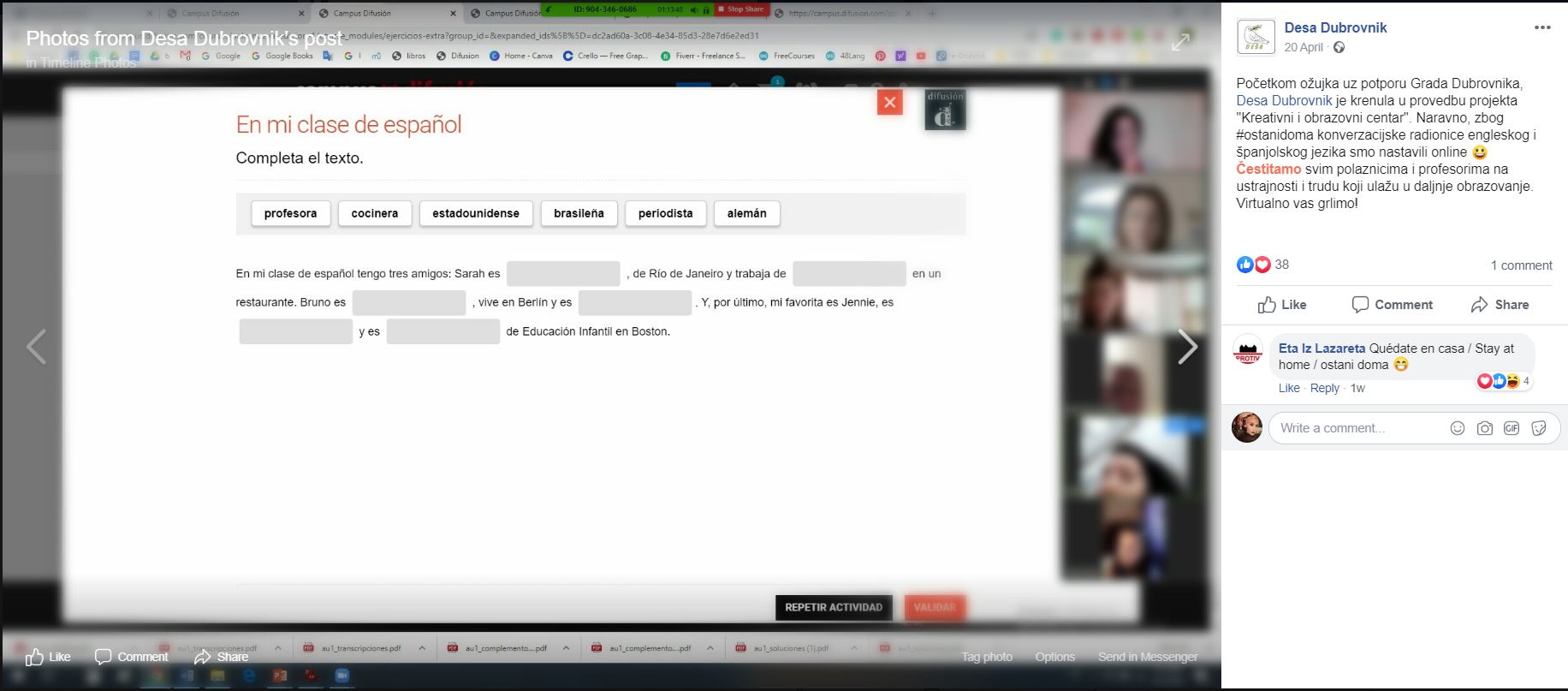
„Sakupljač Dubrovnik“ was originally designed to be a participatory collection action and collective exhibition where the local community would bring objects about which they wanted to tell a story related to their life or the city's past. In such a way, Art Workshop Lazareti wanted to dedicate their spaces in the Lazareti complex to become a center of the community's memory. AWL has successfully moved the project online which in the end made the objects and their stories even more visible to the wider public and many cherished memories were exchanged through the comments. Facebook page: https://bit.ly/2yaZn1K.
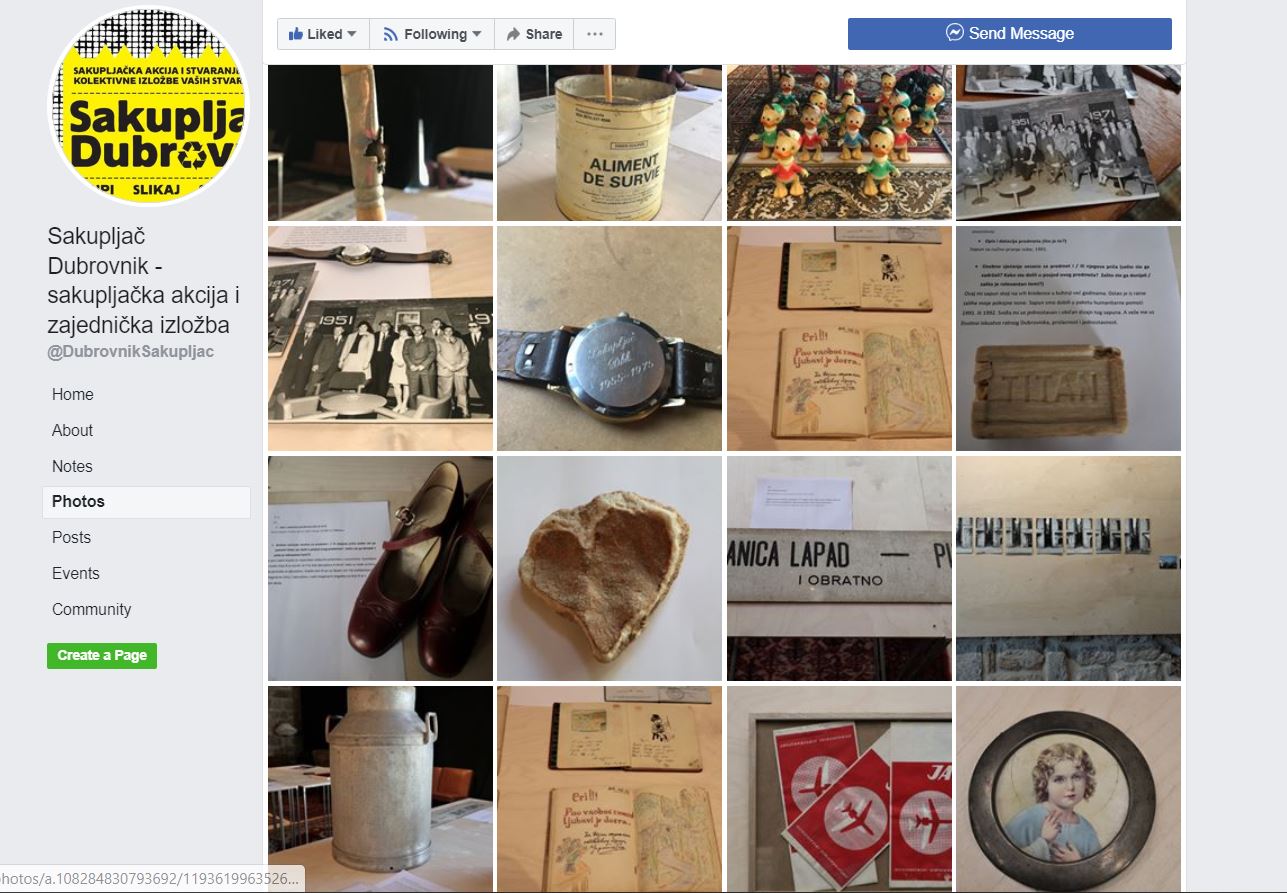
Student Theatre Lero also residing in Lazareti continued sharing their long and rich history of some 52 years through their Facebook page to freshen the memory of their audience and allow them to learn something new: https://bit.ly/2KOfmoY
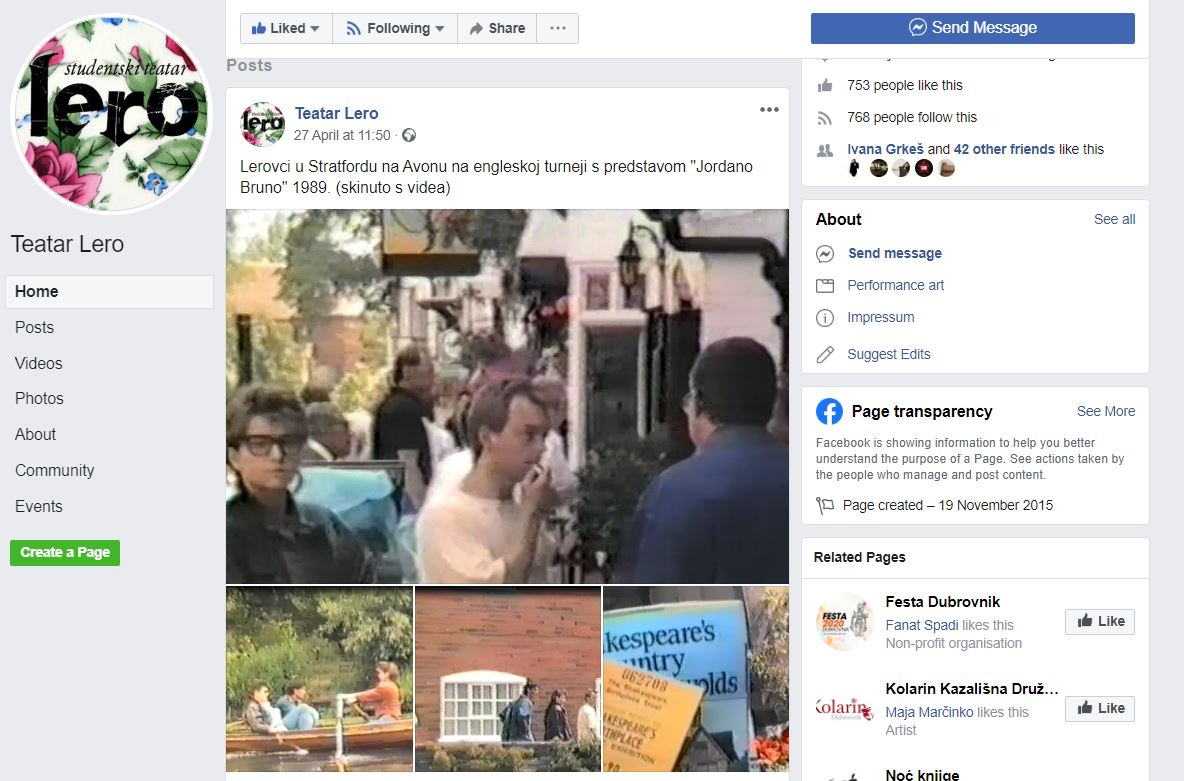
Aside from these public and online activities, NGOs are successfully continuing to work on the management of their projects, organizational and financial issues, strategic planning, and are furthering their education through online meetings and despite significantly changed and extremely unstable working conditions and future financing of their activities. Taking into the consideration this small fraction of their activities, we can conclude that the NGOs from both Lazareti complex and Youth Center have proven that despite all the negative aspects of this situation, due to their enthusiasm, knowledge, skills, and solidarity they have managed to adapt fairly quickly to the coronavirus situation and continue to take care of the needs of their community.
Collaboration and communication between the public and civil actors upon which „Active NGOs“ as a project insists significantly helped in one of the first actions to try and resolve the financing situation with the City of Dubrovnik, and that is an appeal consisted of thoughts and conclusions similar to this article which has been signed by the members of the Youth Center and Platform for Lazareti and will be presented to the City of Dubrovnik to start the negotiation process about the budget cuts. And also importantly, to continue to work with the NGOs as they did with great progress before the pandemic on establishing a stabile civil-public partnership upon which the socio-cultural centers such as Lazareti complex and Youth Center need to be built.
Let us conclude this article with a somewhat optimistic quote from the analysis of the social-cultural centers in Croatia: „Figuratively speaking, members of those initiatives can survive for months without water, food or shelter. At the same time, they are capable of absorbing great amounts of resources in a short time. This makes them maybe the most resilient species in the cultural system“ (Vidović, Žuvela, Mišković 2018, p. 64).
Petra Marčinko, ULG coordinator
Used sources:
1) Strategic Plan of the Civil Society Council of the City of Dubrovnik 2015-2020. 2015. Dubrovnik: City of Dubrovnik. Available at:
https://www.dubrovnik.hr/uploads/pages/7/Strategija-Vijeca-civilnog-drustva-Grada-Dubrovnika.pdf (Accessed 30 Apr. 2020).
2) Vidović, D., Žuvela A. and Mišković, D. (2018) The vision of socio-cultura centers. In: D. Vidović, ed., Do it together. Practices and Tendencies of Participatory Governance in Culture in the Republic of Croatia. Zagreb: Kultura Nova Foundation, pp. 62-72. Available at: http://participatory-governance-in-culture.net/uploads/biljeske_EN_web.pdf (Accessed 30 Apr. 2020).
 Submitted by z.biteniece on
Submitted by z.biteniece on
